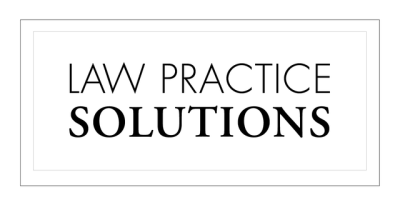
We’ve all heard about the “Great Resignation” — workers leaving their jobs in unprecedented numbers. Now, in the early stages of 2022, there are a reported 11 million job openings in the U.S., suggesting a worsening worker shortage. But why?
The COVID-19 pandemic precipitated a spike in unemployment. Workers who lost jobs collected unemployment compensation and the federal government, most notably, stepped in with additional forms of relief. As the world continues to emerge from the grips of the pandemic and the economy attempts to recover, people aren’t rushing back to work.
Why are so many people leaving the workforce? And more specifically, what is the effect on the legal sector?
WHAT FUELS THE FIRE
Employees are resigning in droves, but why? Is it generationally driven, a movement, groupthink, all of these, or more? We cannot address the problem — or even determine if it is a problem — without understanding the root of its origins.
Before the pandemic, the workplace routine involved commuting to and from the office and sometimes putting up with less-than-optimal office arrangements. This was the norm, and workers had no choice but to abide by it.
In March 2020, the workplace as we knew it came to a screeching halt, forcing many to work remotely. For those who didn’t, the existing existing framework of workplace culture, rules, and human interaction changed dramatically.
This literal, overnight change first resulted in chaos and left most workplaces cobbling together plans to hopefully keep their law firms afloat. The new norm — one that most of us thought of as temporary — was to make things up as you go along.
It took several months, but most of us have learned how to navigate remote work. Some of us have embraced it wholeheartedly. For new workers, this is the only model they know.
Those embracing the “Great Resignation” contend the old workplace model is flawed and the new normal should consist of an entirely remote or hybrid workplace. At the same time, these devotees seem to desire a collaborative approach to developing the new normal.
One word that sums up the central theme of this new workplace model is flexibility, the lack of which seems to be a major driver of the “Great Resignation.” Employees want flexibility; therefore, employers need to learn to incorporate flexibility into their workplace to attract and retain a solid workforce.
IMPLEMENTING FLEXIBILITY INTO YOUR PRACTICE
No two law firms are alike. What may work for one lawyer and their firm may not work for you. The most important thing to remember in creating a flexible workplace is understanding that there’s no one-size-fits-all solution. Think about creating the best work environment for you, your team, and your clients. Keep in mind the goal of delivering excellent legal services while creating a happy, harmonious, highly efficient workplace. Measuring your success requires you to look at your workplace through your own lens while also getting input from your team and clients.
What might flexibility in the workplace look like? Maybe you allow staff to work from home some of the week or maybe you allow compressed scheduling (think of a traditional 40-hour work week, except employees work four 10-hour days.) Showing your team that you are fluid with your approach is the first step to opening the door to fostering communication.
Communication between you, your team, and clients is vital. With remote work, you can’t casually walk across the hall for an impromptu discussion with a fellow employee. Remote communication is much more deliberate and takes time and effort.
Working remotely can lead to email overload. There is a time and place for email, but it shouldn’t be the only way you begin discussions and share information with your team. The pandemic has made people feel more isolated due to the inability to interact with others. Your team members react positively if you engage with them verbally and one-on-one.
Workplace surveys are another means of collecting employee and client input. However, the goal is getting reliable feedback. We’ve all received surveys promising anonymity, but we wonder if they truly are anonymous. Surveys are worthless if those completing them fear they can be identified. Remember, you want to cultivate trust. Guaranteeing anonymity makes survey participants more likely to answer with honesty, boosting the reliability of the information you receive.
Everyone needs to feel valued. When Michigan lawyers were forced to work remotely because they were deemed non-essential, many expressed feelings of being devalued. Being thrust into an unfamiliar work environment made matters worse. Several expressed concerns that their teams, also working remotely, might not be fulfilling their duties, and while this belief seems to have dissipated, leaders harboring distrust against a team or team member without cause is dangerous territory. Expect the best from someone and that is what they will produce. If law firm leaders took the time to express gratitude for a job well done more often, they would be amazed at the resulting quality of work. The irony of the concept of remote workplace laziness is that the reverse is true. Many remote workers say they get more done and have fewer interruptions.
Everyone needs a healthy work-life balance, and everyone needs to feel empowered to step away from work when the day is over. Team members should not be expected to be available for work around the clock.
WHAT’S NEXT?
There are pros and cons to the new normal, whatever that may be for you and your firm. In the April issue of the Michigan Bar Journal, we’ll take a deeper dive into the “Great Resignation” and show you how to build a thriving practice while keeping your team intact.
Law Practice Solutions is a regular column from the State Bar of Michigan Practice Management Resource Center (PMRC) featuring articles on practice, technology, and risk management for lawyers and staff. For more resources, visit the PMRC website at www.michbar.org/pmrc/content or call our Helpline at (800) 341-9715 to speak with a practice management advisor.